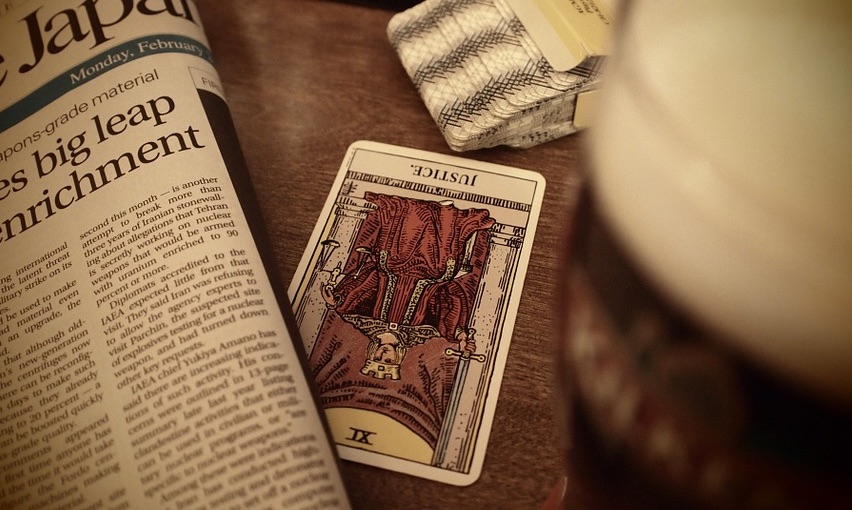The Justice tarot card, a symbol of fairness and balance, embodies truth, accountability, and moral rectitude. However, when this card appears in its reversed position, the interpretation shifts significantly. Reversed, the Justice card signals an array of meanings that delve into the complex layers of human behavior, morality, and injustice. This exploration of the reversed Justice tarot card meaning provides insight into personal dilemmas, ethical quandaries, and the consequences of decisions made without regard for equity.
1. Dishonesty and Deceit
The reversed Justice card often signifies dishonesty, where deception lurks beneath the surface. It can indicate situations where individuals exploit the system for personal gain. This can manifest in various forms, such as lying to avoid accountability or manipulating circumstances to escape consequences. Individuals may find themselves entangled in webs of falsehoods, leading to a fracturing of trust in relationships. Recognizing this deceitfulness is crucial, as confronting it allows for the restoration of integrity.
2. Imbalance and Injustice
Another prominent meaning of the reversed Justice card is the theme of imbalance. In life, situations may feel decidedly unfair, resulting in a perception of injustice that permeates personal and professional spheres. This card encourages an examination of power dynamics and societal structures that perpetuate inequity. Whether in the workplace, friendships, or familial ties, an imbalance of power may result in one party consistently benefiting at the expense of others. Understanding this unfairness can catalyze a desire for change, prompting individuals to strive for equilibrium in their dealings.
3. Personal Accountability Issues
Reversed Justice may also reflect a lack of self-reflection regarding one’s actions. It poses the question: are you avoiding responsibility for your decisions? This card serves as a reminder that ignoring the consequences of one’s actions can lead to deeper personal and relational turmoil. It suggests an internal struggle with acknowledgment—fearing the repercussions of honesty may inhibit growth and self-realization. Thus, facing one’s missteps becomes a crucial turning point in the journey toward personal integrity.
4. Legal Troubles and Ethical Quandaries
In a literal sense, the reversed Justice card can signify legal troubles or impending disputes. It may indicate unresolved issues within judicial or legal contexts, hinting at unfair trials, wrongful accusations, or judgments clouded by bias. Thus, individuals may feel trapped in an unsettling quagmire as they navigate these predicaments, overwhelmed by the complex intersections of law and morality. It highlights the importance of clear ethical frameworks and the detrimental effects of neglecting them.
5. Moral Confusion
When the Justice card is reversed, it denotes a sense of moral confusion, where individuals grapple with dilemmas that blur the distinctions between right and wrong. In various life situations, one may encounter challenges that compel them to question their values. This may lead to ethical paralysis, where the sheer weight of decision-making fogs judgment. This card prompts introspection, urging a deeper connection with personal values, leading one towards moral clarity.
6. A Call for Reexamination of Beliefs
The reversed Justice card invites individuals to reexamine preconceived notions of fairness and justice. It challenges societal norms that may no longer serve a favorable purpose. Individuals are encouraged to question their beliefs about what constitutes right and wrong within the societal framework. This often leads to transformative experiences that reshape personal ideologies, allowing for a more nuanced understanding of justice.
7. The Consequences of Inaction
Ignoring the implications of the reversed Justice card can result in negative consequences. Inaction in the face of unjust scenarios often leads to stagnation and disillusionment. This card serves as a warning, illustrating how hesitance or avoidance can perpetuate cycles of injustice. By confronting rather than evading these challenges, individuals can lay the groundwork for rectification and reform. It emphasizes the need to advocate for oneself and stand firm against inequity.
8. Reflection and Personal Growth
Despite its disheartening connotations, the reversed Justice card also provides an opportunity for profound personal growth. By acknowledging the presence of injustice and dishonesty—both internally and externally—individuals can embark on a journey of healing and renewal. This process often involves looking inward and embracing vulnerability, which fosters resilience and a stronger moral compass. Transformation hinges on embracing the lessons learned through these trials.
9. Navigating Relationships
In the realm of relationships, the reversed Justice card may reveal underlying tensions. Distrust, dishonesty, or indecision can plague interactions, creating an unstable dynamic. Individuals must confront these issues head-on in order to restore balance and communication. This calls for open dialogues, where feelings of remorse or betrayal are expressed and addressed. Nurturing honest and transparent interactions paves the way for healthier connections.
Conclusion
The reversed Justice tarot card offers a rich tapestry of meanings that underscores the complexities of morality, fairness, and personal accountability. Its appearance may prompt a deep evaluation of one’s values and behaviors, encouraging growth, reflection, and change. Understanding its implications not only enhances one’s grasp of personal dilemmas but also unlocks pathways to justice through self-awareness and conscientious action. While it may initially evoke unease, the reversed Justice card ultimately serves as a powerful catalyst for transformation.







Leave a Comment